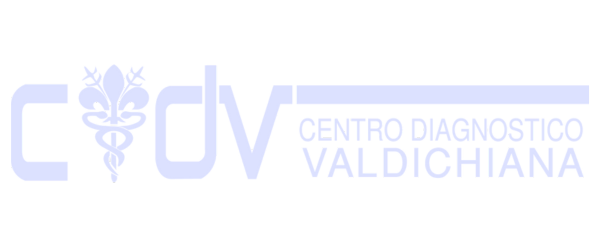Vitamina D e salute
La vitamina D è fondamentale per la salute delle ossa e del sistema immunitario, favorendo l’assorbimento del calcio e proteggendo il tuo benessere generale.
1. Wouldn’t it be great if one vitamin could build stronger bones and protect against diabetes, multiple sclerosis, cancer, heart disease, and depression? Or even help you lose weight? Researchers have high hopes for vitamin D — which comes from our skin’s reaction to sunlight, a few foods, and supplements. Learn the facts in the slides ahead … and see who’s at risk for a “D” deficiency.








9. Choose your breakfast foods wisely, and you can get a substantial amount of vitamin D. Most types of milk are fortified, including some soy milks. Orange juice, cereal, bread, and some yogurt brands also commonly have added vitamin D. Check the labels to see how much “D” you’re getting.

10. Eating D-rich foods is the best way to get vitamin D. If you still need help getting enough, there are two kinds of supplements: D2 (ergocalciferol), which is the type found in food, and D3 (cholecalciferol), which is the type made from sunlight. They’re produced differently, but both can raise vitamin D levels in your blood. Most multivitamins have 400 IU of vitamin D. Check with your health care provider for the best supplements for your needs.

11.
Problems converting vitamin D from food or sunshine can set you up for a deficiency. Factors that increase your risk include:
-
Age 50 or older
-
Dark skin
-
A northern home
-
Overweight, obese, gastric bypass surgery
-
Milk allergy or lactose intolerance
-
Liver or digestive diseases, such as Crohn’s disease or celiac


13. There’s a simple blood test used to check your vitamin D level, called the 25-hydroxyvitamin D test. Current guidelines by the Institute of Medicine set a blood level of 20 nanograms per milliliter (ng/mL) as a goal for good bone health and overall health. However, some doctors say people should go higher, to about 30 ng/mL to get the full health benefits of vitamin D.

14. There’s a simple blood test used to check your vitamin D level, called the 25-hydroxyvitamin D test. Current guidelines by the Institute of Medicine set a blood level of 20 nanograms per milliliter (ng/mL) as a goal for good bone health and overall health. However, some doctors say people should go higher, to about 30 ng/mL to get the full health benefits of vitamin D.

15. Breast milk is best, but it doesn’t have much vitamin D. Breastfed babies need 400 IU of vitamin D until they’re weaned to fortified formula and can drink at least one liter (about 4 ¼ cups) every day. Starting at age 1, babies drinking fortified milk no longer need a vitamin D supplement. Be careful not to give too much vitamin D to babies. High doses can cause nausea, vomiting, loss of appetite, excessive thirst, muscle aches, or more serious symptoms.

16. Breast milk is best, but it doesn’t have much vitamin D. Breastfed babies need 400 IU of vitamin D until they’re weaned to fortified formula and can drink at least one liter (about 4 ¼ cups) every day. Starting at age 1, babies drinking fortified milk no longer need a vitamin D supplement. Be careful not to give too much vitamin D to babies. High doses can cause nausea, vomiting, loss of appetite, excessive thirst, muscle aches, or more serious symptoms.

17. Some researchers suggest taking far more vitamin D than the 600 IU daily guideline for healthy adults. But too much be dangerous. Very high doses of vitamin D can raise your blood calcium level, causing damage to blood vessels, heart, and kidneys. The Institute of Medicine sets the upper tolerable limit at 4,000 IU of vitamin D per day. You can’t get too much vitamin D from the sun. Your body simply stops making more. But sun exposure without sunscreen can raise your risk of skin cancer.

18. Some drugs cause your body to absorb less vitamin D. These include laxatives, steroids, anti-seizure and anti-cholesterol medicines. If you take digoxin, a heart medicine, too much vitamin D can raise the level of calcium in your blood and lead to an abnormal heart rhythm. It’s important to discuss your use of vitamin D supplements with your doctor or pharmacist.

But newer studies suggest that people with higher levels of vitamin D in their blood may have a lower risk for colon cancer.


21. Low levels of vitamin D have been linked to a greater risk of heart attack, stroke, and heart disease. Still, it’s not clear whether boosting vitamin D will reduce heart risks and how much vitamin D is needed. Very high levels of vitamin D in the blood can actually harm blood vessels and the heart by increasing the amount of calcium in the bloodstream.

22. Older people are more likely to have vitamin D levels that are too low. Researchers found that older people with vitamin D deficiency performed poorly on tests of memory, attention, and reasoning compared to people with enough vitamin D in their blood. Still, better studies are needed to learn if vitamin D supplements could prevent dementia or slow mental decline.

Vuoi diventare socio? Contattaci
Telefono
Indirizzo
Piazza Settevalli, 133/U 06129 – PERUGIA
ORARI PER PRENOTAZIONI NUOVI ACCESSI:
Lunedì e Martedì dalle 08:00 alle 12:00 / Venerdì e Sabato CHIUSI
N.B.: Gli orari potrebbero essere soggetti a variazioni (vedi google: aruo perugia)




